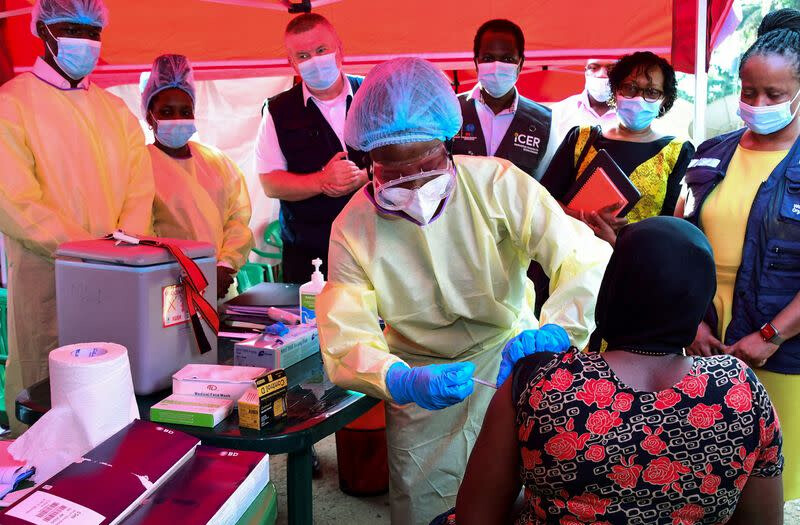
KAMPALA, Uganda – Uganda has declared its latest Ebola outbreak officially over after the last eight patients made a full recovery and were discharged from the main referral facility in Kampala on Tuesday. This positive development marks a significant victory in the country's ongoing fight against the deadly virus. The World Health Organization (WHO) lauded Uganda's swift and coordinated response, highlighting the recoveries as a testament to the effectiveness of their efforts.
The outbreak, declared on January 30th, tragically claimed the life of a male nurse in Kampala, who became the first and only fatality. Several of his relatives were subsequently hospitalized after testing positive for the Sudan strain of Ebola, the specific strain responsible for this outbreak. This strain is particularly concerning as there are currently no approved vaccines or specific treatments available.
A crucial aspect of Uganda's containment strategy was rigorous contact tracing. Health Minister Jane Ruth Aceng confirmed that officials identified and monitored at least 265 contacts of infected individuals. Of those, at least 90 successfully completed their quarantine period, during which they were closely observed for any signs of the disease. This proactive approach played a vital role in limiting the outbreak's spread.
Despite the absence of approved vaccines for the Sudan strain, Uganda has taken a proactive step by launching a clinical trial to evaluate the safety and efficacy of an experimental vaccine. This initiative demonstrates the country's commitment to developing better tools to combat future Ebola outbreaks. The trial is a collaborative effort involving international partners and will contribute valuable data towards developing a more robust defense against this deadly virus.
This recent outbreak was significantly less devastating than the one Uganda experienced just last year. The 2022 Ebola outbreak, which began in September and lasted for four months, resulted in at least 55 deaths. The relatively swift containment of this latest outbreak underscores the improvements in Uganda's public health infrastructure and response mechanisms.
Ebola is a viral hemorrhagic fever, transmitted through direct contact with the bodily fluids of an infected person, or contaminated materials. Symptoms can include fever, vomiting, diarrhea, muscle pain, and in severe cases, both internal and external bleeding. The virus is believed to originate from animals, with initial human infections likely occurring through contact with infected wildlife or consumption of raw bushmeat. Ebola was first identified in 1976 in simultaneous outbreaks in South Sudan and the Democratic Republic of Congo, near the Ebola River, from which it takes its name.
The successful containment of this recent outbreak provides a sense of relief and hope, not only for Uganda but also for the wider region. It serves as a powerful reminder of the importance of preparedness, rapid response, and international collaboration in tackling infectious disease outbreaks. While challenges remain, Uganda's experience offers valuable lessons for other nations in strengthening their own public health systems and safeguarding against future threats.
[Copyright (c) Global Economic Times. All Rights Reserved.]






























